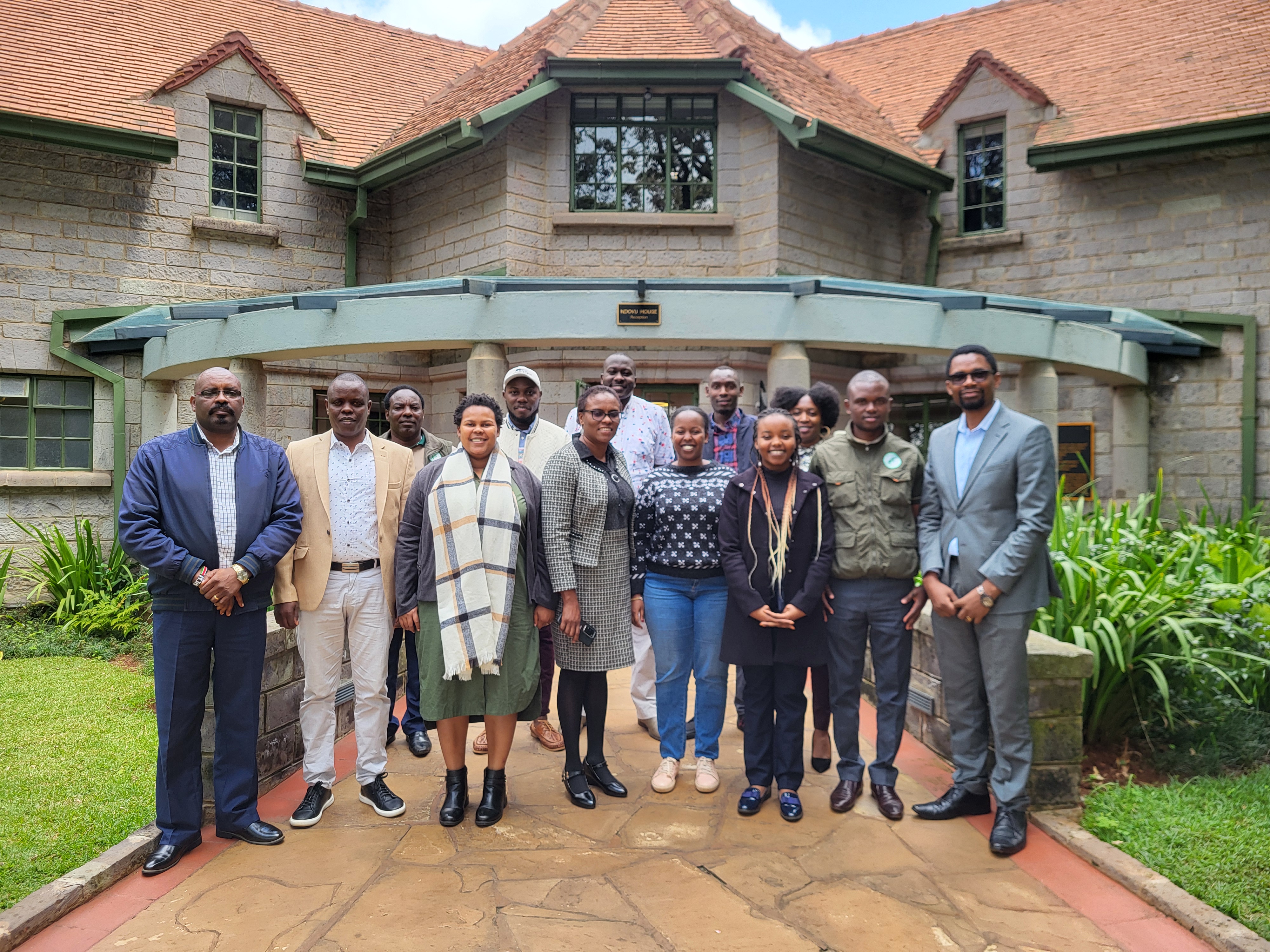AWF, Wildlife Clubs of Kenya (WCK) Launch a 4-Year Conservation Education Project in Tsavo, Kenya

Group Photo after inception meeting of the 4 year conservation education project Tsavo,kenya
General Inquiries
Tel:+254 711 063 000
Ngong Road, Karen, P.O. Box 310
00502 Nairobi, Kenya
The African Wildlife Foundation (AWF), in partnership with the Wildlife Clubs of Kenya (WCK), officially launched a transformative four-year project titled ‘Building a Movement of Young Conservation Change Agents’ supported by Bob and Emmy King.
This initiative seeks to strengthen and scale up conservation education among children and youth in the Tsavo Landscape, Kenya, for increased efforts in wildlife and wildlands conservation at both the local and national levels.
Covering 48,000 square kilometers on the Kenya side of the border, the Tsavo landscape stands as the country's largest conservation area, housing Tsavo East and West National Parks. It represents 4% of Kenya’s landmass and shelters critical wildlife species, including over a third of Kenya’s elephants and nearly a fifth of its black rhinos.
High poverty levels in the wildlife-rich Tsavo contribute to a surge in poaching and charcoal burning, with an increasing number of young people and school-age children getting involved. Moreover, rising human-wildlife conflict and land competition worsen the situation, making local communities, especially the youth, view wildlife as a burden rather than an asset.
In this project, AWF and WCK aim to leverage the power of technology and the wildlife clubs in Kenya to strengthen and scale up conservation education, ultimately reconnecting children and youth in Tsavo (Kenya) with nature.
It’s worth noting that this partnership is rooted in history, as AWF was pivotal in the formation of WCK in 1968 by supporting students from Kagumo High School in Nyeri to establish Kenya's first wildlife club, which later led to the formation of the Wildlife Clubs of Kenya.
The project aims to expand conservation education, targeting approximately 83,000 learners in 137 schools in the Tsavo landscape. Additionally, ten students from local schools will receive support through secondary school scholarships and will be given opportunities to promote conservation.
At the project’s inception meeting in May, WCK CEO Dr. Margaret Otieno emphasized that the project perfectly aligns with WCK’s mandate, which is “To empower youth and communities to proactively engage in wildlife and environmental conservation”.
AWF’s Kenya Country Director, Nancy Githaiga, added that AWF’s extensive experience and understanding of Tsavo's challenges uniquely positions them to support these efforts. The importance of this project in the landscape and Kenya at large was further reiterated by Mr. Joseph Githau (State Department of Wildlife, Ministry of Tourism and Wildlife) and Ms. Zainabu Salim (Kenya Wildlife Services, Assistant Director for Conservation Education), who were both in attendance for the project inception meeting.
By equipping Kenyan youth and children with essential knowledge, skills, and resources, as well as strengthening their wildlife clubs, they will reconnect with nature and actively engage in biodiversity conservation. This effort will enhance human-wildlife coexistence and improve species conservation across their landscapes.
The project will pilot a continent-wide conservation initiative, promoting young people’s involvement in securing a sustainable future for Africa's wildlife and wildlands. This effort is particularly crucial, given that 40% of Kenya’s population is 15 years or younger, and 70% of sub-Saharan Africa’s population is under 30 years.
ANTICIPATED PROJECT OUTCOMES
● Sustained and expanded the scale and impact of conservation education in Kenya driven by the Wildlife Clubs of Kenya (WCK).
● Updated, interactive conservation education materials are developed, distributed, and actively used by learners and teachers across the country.
● About 83,000 learners, drawn from 137 schools, will have received conservation education in the Tsavo landscapes.
● Teachers/patrons from 137 schools have enhanced capacity to deliver conservation education in Tsavo landscape, as well as at the national level.
● 10 learners drawn from local schools will have been supported with secondary school scholarships and opportunities to champion conservation to their peers and beyond.